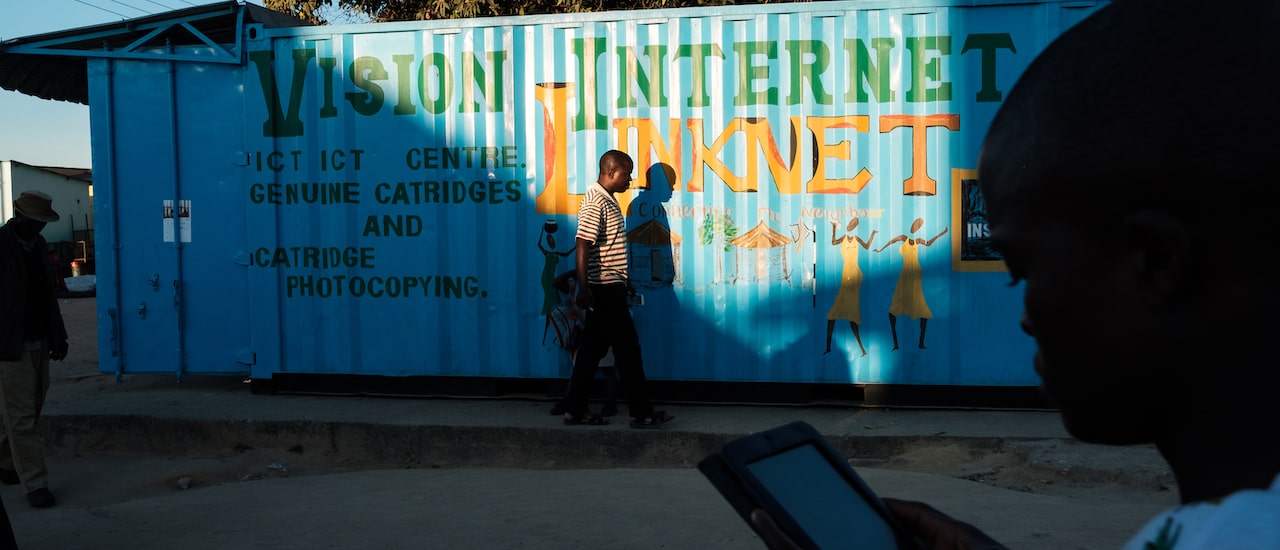Editor’s note: This opinion piece was originally published in Fortune.
Wherever we live, there is plenty to be afraid of. Wars are raging on. Authoritarians are on the rise. The climate is changing so fast that we are unable to keep up. And yet, we seem unable to do anything about it. With all that on our minds, it is not surprising another threat is being overlooked: the global drift toward “splinternet.”
“Splinternet” is a word for the loss of the single, globally connected, and decentralized Internet. Our experience of a single resource is fragmenting into separate networks controlled by governments or corporations. We need to stop it.
China’s connection to the Internet has long been vastly different from the online experience elsewhere. The Internet in China is tightly controlled through central operation and the so-called “Great Firewall.” Many parts of the global Internet cannot be reached from China, yet this way of operating seems to attract the interest of other governments.
Russia has been attempting to mimic China’s approach for over a decade, through “RuNet.” Russia’s invasion of Ukraine brought greater attention to RuNet because it rerouted existing Ukrainian network connections through Russia in the areas that it occupies.
In Cambodia, a proposed “National Internet Gateway” would manage all local and international online traffic through a centralized government facility, making the Internet far less open for all Cambodians.
If You Think It’s Not a Problem in the West—Think Again
In July, actions by the Irish Data Protection Commission threatened to disconnect users from social media platforms for their own privacy protection. In both Brussels and London, draft legislation is pending that would effectively give governments and third parties access to private communications under the nebulous umbrella of “dangerous content.”
European telecommunications interests are pressing for new telecoms rules that will make the fragmentation worse, by requiring tech companies to share the costs of infrastructure with the telecom operators. Users will only be able to access online services that have specifically contracted with a telecom provider, which means what parts of the Internet a user can see will depend on what contracts the user’s Internet Service Provider has. Of course, extra costs will undoubtedly be passed onto end users.
Meanwhile, Canada is attempting to regulate the Internet by treating it as a broadcast medium (under Bill C-11), as well as attempting to regulate what constitutes news content online, and how that news is paid for (Bill C-18). In the United States, various states have proceeded with separate Internet legislation governing privacy, child protection, and content moderation, creating the possibility of 50 separate Internet jurisdictions in the U.S. alone.
In all of these cases, the networks generally will use the same names and protocols as the global Internet. But the ability to access all the resources on the Internet will be at best incomplete, with access to those resources depending on who and where you are and what contracts your Internet Service Provider has signed. Different versions of the “same information” might be made available depending on approval or sanction by a particular government or company. Some companies, of course, will withdraw service from this or that jurisdiction to avoid costs or legal liabilities. People might still call whatever emerges “the Internet”–but it will no longer be the real thing: accessible to all, built on an open architecture, decentralized, scalable, technology-neutral, simple, and adaptable.
Allowing this to happen to the greatest innovation of the present age would be criminal. The Internet allows us to connect, communicate, collaborate, and create with anyone, anywhere. It has become the backbone of the world economy. It saw us through the pandemic. It is an indispensable lifeline for so many who are isolated or marginalized. It’s bad enough we haven’t connected everyone. Now we seem to want to disconnect those already connected.
There is hope. In Africa, efforts to strengthen the Internet and deepen its cross-border connections have produced remarkable results. In August, the general election in Kenya created a new standard for electoral transparency by displaying the counting and tabulation of ballots online in real time, protecting the democratic process. We have Kenya’s globally integrated, resilient Internet access to thank. The world should follow their lead.
We must take a stand in defense of the Internet whenever there are threats, whether they come from a country, a corporation, or a misguided policy. 2023 must be a turning point for stemming this tide of Internet fragmentation so that our open Internet can continue to serve its role as a global, vital resource for everyone.
We all have a stake in the Internet’s survival. Read our Action Plan and see how you can protect its future.
Image copyright: ©Nyani Quarmyne

